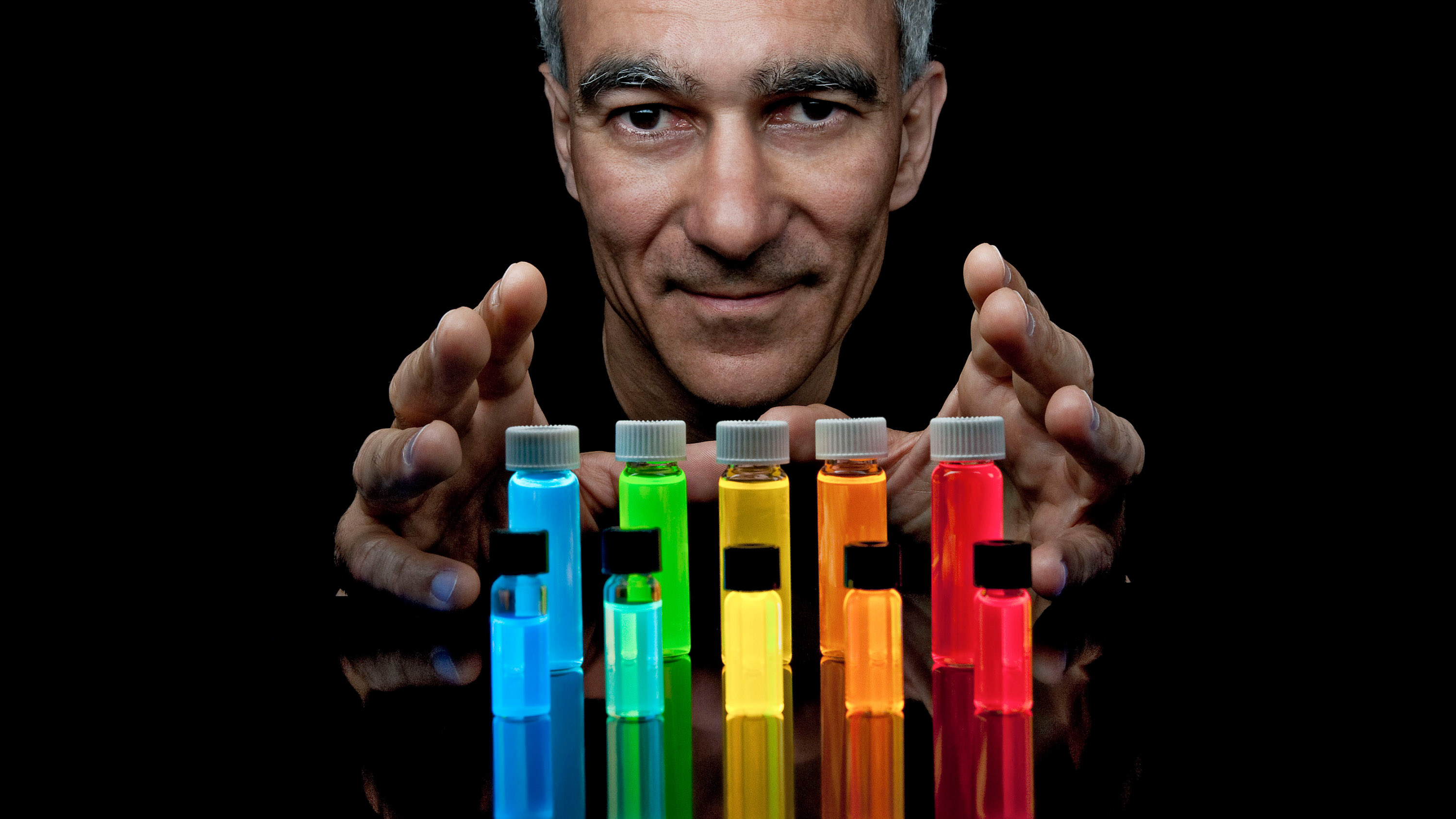A Nobel Prize for Bawendi
The MIT chemist shares the award for his work on quantum dots.

Moungi Bawendi, a leader in the development of quantum dots, won the 2023 Nobel Prize in chemistry along with Louis Brus of Columbia University and Alexei Ekimov of Nanocrystals Technology.
Quantum dots are bits of semiconductor material so small that they are governed in part by the laws of quantum mechanics. When illuminated with ultraviolet light, the dots fluoresce in a range of colors determined by their sizes. Ekimov and Brus independently created quantum dots in the early 1980s, but Bawendi and his students were the first to report a method for maintaining precise control over their size.
At the time, the researchers were interested in making quantum dots just so they could further study their unique properties. But the particles are now used in many types of biomedical imaging, as well as computer and television displays, and they also hold potential in fields such as quantum computing.
Bawendi, 62, who was born in Paris and grew up in Indiana, was educated at Harvard and the University of Chicago and has been at MIT since 1990.
“It’s hard to think of a more elegant expression of Mind and Hand,” President Sally Kornbluth wrote about Bawendi’s work in a letter to the MIT community when the award was announced.
Keep Reading
Most Popular
The Biggest Questions: What is death?
New neuroscience is challenging our understanding of the dying process—bringing opportunities for the living.
Google DeepMind used a large language model to solve an unsolved math problem
They had to throw away most of what it produced but there was gold among the garbage.
Unpacking the hype around OpenAI’s rumored new Q* model
If OpenAI's new model can solve grade-school math, it could pave the way for more powerful systems.
10 Breakthrough Technologies 2024
Every year, we look for promising technologies poised to have a real impact on the world. Here are the advances that we think matter most right now.
Stay connected
Get the latest updates from
MIT Technology Review
Discover special offers, top stories, upcoming events, and more.